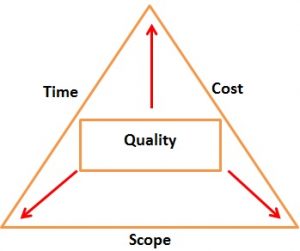
This free course is prepared by Business Information Technology students. We look at how to run a successful family business by focusing on four aspects of family business:
- What a family business is
- Project management tools and techniques
- Family business marketing principles
- Family business use of relevant social media networks
After introducing the concept of family business we will consider the benefits of social media, the application of proven marketing techniques and the advantages of using project management tools for improving business performance.
What is a family business?
Family businesses are the world’s oldest and most common form of business organisations. Over recent years, the number and type of family businesses have increased significantly and is an ever present dynamic force in the world economy. In many countries, family businesses play a key role in ensuring long-term economic growth as they are very often longer lasting than any other form of business.
Innovation in family business
- Family businesses innovate specifically to secure their long-term success
- Family owned investments means there are fewer external investors to consider or to satisfy
- Family based management produces stronger project leadership and usually a firmer commitment of resources
Keys to success in family business
- Institute clear and regular communications
- Set boundaries including conducting less business discussions outside the office and not to mix business time with family time
- Put business relationships in writing that define compensation, duties, ownership shares and other matters
- Develop a clear and formal succession plan
Difference between family business & other businesses
- The family name is the brand
- Higher degree of passion and commitment is put into the business
Benefits of family business
There are many benefits of family business that depend on the size and personality of the family as well as its stage of development, some common benefits include…
- Strong loyalty
- Clear values
- High levels of patience
- Career development opportunities
Processes for doing successful family business
There are a range of processes that are particularly important for a family business…
- Family business meeting for formal communications
- Family business rules and regulations
- Preparing successors
- Management processes
- Family governance
- Shareholder agreement
Project management
A sound recording of a HR Manager talking about project management

Project management describes the method of planning and organising a task. Project management is an increasingly important aspect of any business as the majority of activities that go beyond regular day-to-day tasks can be organised as a specific project. For small and medium family businesses project management enables the close control of precious resources.
Project management also assists a business in keeping a record of what tasks have been completed and those that are yet to be finished. Equally important, project management helps to manage the staff time available to a family business more effectively. To successfully manage a project a family business must be clear about its objectives. The more specific a project’s objectives the better chance that they will be achieved.
Two key considerations define the focus and purpose of any project…
- What will be used to assess achievement?
- What are the measure that define the success of the project?
There are various software programs that can assist with project management including Microsoft Project and OpenProj.
Project management triangle
The main objectives in a project are always Time, Scope and Cost. This relationship is often illustrated with a balanced triangle…
Any tensions between these three factors will compromise the quality of the project. The project management triangle is a useful technique to illustrate the competing pressures on any project in a family business. If someone is trying to increase the scope of a project without increasing the time or the cost this will affect the quality of the project.
Similarly, if project time is reduced this will impact on scope and cost – which will be reduced too. The main lesson is that there needs to be harmony for the three elements to balance in a project.
Main objectives of project management
The main concerns in a project are always time, quality and cost. Plans can change but the objectives will always remain the same and these objectives have to be achieved in order for the project to be considered a success. Strong project management improves design and execution phase decisions. Clear planning also enables identification of when the project is finished and budget constraints have been achieved.
Family business marketing
“The strategic business function that creates value by stimulating, facilitating and fulfilling customer demand – it does this by building brands, nurturing innovation, developing relationships, creating good customer service and communicating benefits” (CIM, Shaping the Agenda, 2005).

Marketing orientation
Narver and Slater (1990) identifies three aspects of a successful marketing strategy…
- Customer orientation
- Competitor orientation
- Inter-functional co-ordination
The marketing mix – seven Ps of marketing
A common classification of decisions made by marketers evolves around the following seven Ps…
- Product
- Price
- Place
- Promotion
- People
- Processes
- Physical evidence
Market penetration
Market penetration is where business focus on selling existing products into existing markets. Businesses that use this strategy focuses on markets and products that it knows well, whilst holding a lot of information on its competitors and customer needs. This strategy will not require much investment in new market research.
Market development
Market development is where the business seeks to sell its existing products into new markets. It is a riskier strategy than market penetration due to the targeting of new markets and the unknown but this strategy can also high higher returns if a market has no competitors.
Product development
- Product development is where a business aims to introduce new products into existing markets.
- This strategy may require the development of new abilities and requires the business to modify products which can appeal to existing markets.
Diversification
- Diversification is where a business markets new products in new markets.
- This is a risky strategy because the business is moving into markets in which it doesn’t have much experience in..
- A business must have a clear idea about what it expects to gain from the strategy and needs to have assessed the risks.
- If business find the right balance between risk and reward, diversification can be highly rewarding strategy.
Using social media for a family business
“Recent literature has shown that social presence is one of the most significant factors in improving instructional effectiveness.” (Aragon, 2003)
Social Media use can help to bring a family business to the top results of search engine results page. Social networking sites can help promote the business and even expand suppliers and distribution contacts.
Activity 3 – Starting in social media
Consider a family business and identify the following elements of the brand…
- Name
- Slogan
- Symbol
- Design
Types of social media
 LinkedIn
LinkedIn
- This is a professional social network site
- LinkedIn is used to build networks with potential business associates, e.g. suppliers, wholesalers and buyers
- It is better to keep a personal account that runs under an individual’s name, a business account can then be added to the profile
- This approach helps to promote the business as it is adding to your online presence
- Facebook is a social network site used for communicating
- To benefit from Facebook the family business will require a page
- This page can be used to promote the business by including background information and details about the family business’s offering
- It is important to choose a Twitter name that is easy and relevant to the business
- When setting up the account incorporate a profile picture that is relevant to the family business
- Twitter then can be used to promote specific offers
- Twitter can be used to give feedback and discuss the business one-to-one
Google+
- Creating a profile on Google+ enables business information to be embedded directly within the Google system
- All the social network sites can be interlinked with this and help bring results and all related pages to the family business more widely searchable
Check-list for using social media
- Choose a profile names that contains your business name
- Explore which social networks are used by your customers
- Create profiles on the relevant social network sites such as…
- Google+
- Link these profiles to your website and also integrate the website link on these profiles.
- Listen to your customers and engage in conversation – make sure you regularly monitor these social media profiles
- Share latest news from your family business, post images of the latest products
- Consider running competitions to engage your audiences as well as build your brand awareness
- Ask questions from your customers – can they help you to develop your family business further?
- Use Google+ to share links to your blog posts and web pages that contain your product listings – this should help with your search engine results pages listings.
- Post regularly
Have you learned some basic principles on how to run a successful family business? Share your thought below and if you like our advice why not share it with your family business members?

Fantastic work, very informative, well structured and allot new to discover, great team work!
Thank You Dear.. 🙂
Interesting blog! Great recording about the different elements of project management.
Thanks Tan.. 🙂
Thank You Bilal.. That’s very encouraging:)